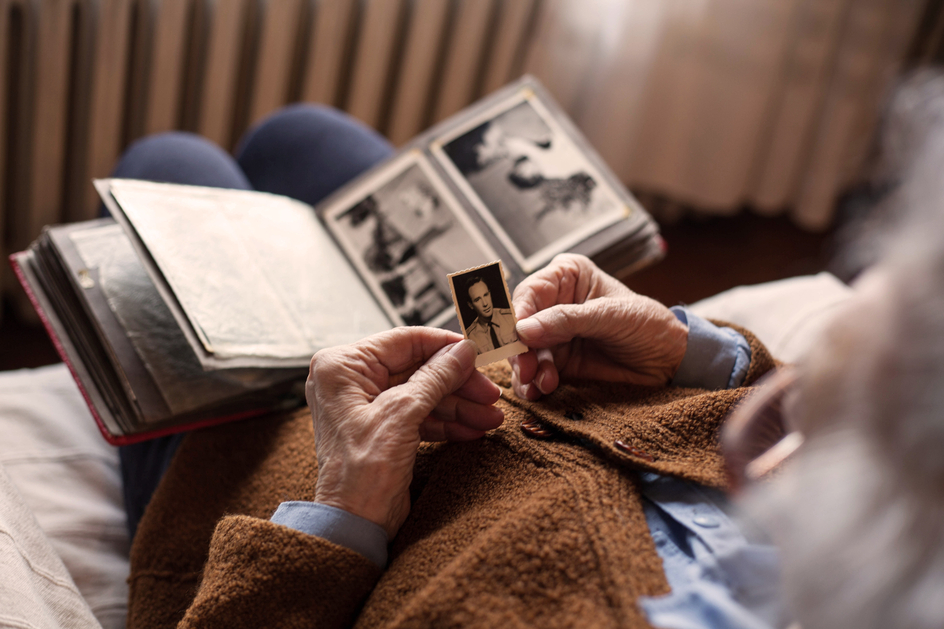
If you’re caring for an aging parent with Alzheimer’s disease, or another form of dementia, you may have noticed your loved one becoming confused, anxious, aggressive, agitated, or restless.
This sundowning behaviour is estimated to affect 66 percent of people living with dementia. This is reported by the Alzheimer Society, who, like many experts in the healthcare industry, are evolving the term to better explain its challenges.
“I have an aversion to labels like sundowning, because it runs contrary to our philosophy of supporting the individual,” explains Dr. Heather Palmer, a cognitive well-being specialist. The expert in brain-behaviour relationships developed Amica’s Memory-Care programs.
What is late-day confusion?
It manifests as a noticeable change in behaviour, mood, and cognitive function in those living with Alzheimer’s or other forms of dementia.
Symptoms of late-day confusion, which often occur in late afternoon or early evening, can potentially present challenges for caregivers as they may change frequently.
While people living with Alzheimer’s or dementia each have unique symptoms, commonly observed manifestations include:
- pacing or wandering, possibly resulting from restlessness
- crying or yelling, potentially relating to fear or anxiety
- episodes of irritability or agitation
- heightened mental states, including confusion or paranoia
The above list is not exhaustive. So, closely monitor your loved one to get a better understanding of how they’re being affected by late-day confusion.
What causes late-day confusion for people experiencing dementia?
These behaviours often occur when seniors are tired, hungry, not engaged, or as irritation mounts throughout their day. “Someone with dementia may not have the ability to process experiences and address them as they are experienced, so there’s a greater likelihood frustration will linger and build,” explains Dr. Palmer.
She continues: “If the senior is unable to recognize and communicate their experiences — whether they’re feeling hungry or bored or need to use the washroom — they are likely to communicate through behaviours.”
That said, not everyone diagnosed with Alzheimer’s, or other forms of dementia, are affected by the syndrome. In fact, it’s not clearly understood what brings it on other than the change in the time of day.
However, there’s research that points to the following triggers:
- Infections: Urinary tract infections, for example, can cause delirium in seniors, which could exacerbate the varied symptoms of late-day confusion.
- Dehydration: Water helps balance chemicals in the body. Without enough of it, individuals can become disoriented or confused.
- Boredom: Mental stimulation can help slow the progress of dementia and may prevent restlessness by fulfilling a sense of purpose.
- Physical illnesses (which may cause pain): Late-day confusion may be caused by the person trying to communicate a need, such as being in pain due to an illness.
- Overstimulation due to overwhelming daytime activities: Being considerate of a senior’s schedule and capabilities is important. They may become tired quickly, which can lead to late-day confusion symptoms.
But, Dr. Palmer notes that monitoring the symptoms alone may not be enough. “Disease processes and symptoms may manifest differently in different people based on who they are and what they’re feeling,” she says. “It’s more beneficial to seniors if their family or caregivers can ask themselves, ‘What is this person experiencing right now, and what can I do to support that person.’”
How you can help your loved one overcome late-day confusion (or sundowning)
Our objective at Amica is to get to know every resident and their habits and to balance activity so they don’t reach a point of fatigue, frustration or escalating anxiety. With that in mind, Dr. Palmer has tips for supporting your loved through this difficult time.
-
Embrace natural light
Sitting near a bright window, or changing the brightness of a room, can help regulate your loved one’s internal clock.
Consider sitting outside during the day when the sun is high and adjusting lights at night to reflect a softer glow. Such mindful shifts in lighting may play a pivotal role in curbing late-day confusion behaviour as the morning progresses to afternoon and evening.
-
Balance daily activities
When discerning how to handle sundowning, or late-day confusion, it’s important to look at the day as a whole. Plan small bursts of physical activity with your loved one, but don’t overdo it.
A full schedule can be overwhelming for a senior with late-day confusion, but the right balance of exercise can help spur relaxation in the evening without causing too much fatigue before bedtime.
-
Know your loved one
It may sound obvious, but if you know your dad’s comfort zone in terms of sleeping, waking, eating, exercising, socializing, and leisure time, it can make a difference to track those preferences during the day. It will help you recognize how to make his day go more smoothly or be proactive if he faces challenges.
-
Tailor engagement opportunities to your parent
If you know your mom loves music, use it to engage her positively and diffuse confusion, anxiety, et cetera. The flip side is also true: if your dad hates music, then turning on the radio may escalate difficult behaviour. Instead, find an activity that feeds his interests.
-
Make an inventory of activities your loved one enjoys
In one column, list ideas that are physically engaging or energetic, such as going for a walk. In the second column, include solitary activities, such as painting. Finally, think of activities that are cognitively engaging, such as having a conversation or playing a game.
These will prepare you for potential challenges. “If you do this in advance, you’re not trying to think on the spot when things are escalating,” says Palmer.
-
Match activities to energy at a given time
Try to recognize your loved one’s abilities, skills and emotional state throughout her day. If your mom has had a sleepless night, or an exhausting day, she may not respond to an afternoon activity that takes more energy than she has to give.
In other words, taking your mom to her favourite swimming class might be soothing on one day but frustrating on a different day when her coping skills have been compromised.
-
Create a memory book or box about your loved one
At Amica, every resident has a box or scrapbook highlighting their past through pictures, clippings, and other meaningful objects, such as ticket stubs, recipe cards, a tennis ball, or a calculator.
“The boxes and books allow residents to engage alone or one-on-one to reminisce, reflect and talk about things we know are important to them,” says Palmer.
It could help to create something similar.
-
Create activity kits, and give ideas about tasks that can be completed
Depending on your loved one’s interests, you might keep a box of beads to be strung, buttons to be sorted or miscellaneous laundry in a basket that could be folded.
-
Provide choices and opportunities
It helps your loved one if you use visual prompts (showing, pointing) instead of just talking. You might ask, “Would you like to look through this box about your life, or would you like to listen to this classical music CD?”
-
Don’t be afraid to keep activities quiet
Palmer says some families assume that to enhance the cognition of their loved one with dementia, they must always engage them in activities. Accomplishing a task alone, such as folding napkins to help set the table, can be just as pleasurable and meaningful.
Learn more about Amica’s work supporting seniors in our Memory Care communities. Our Find-a-residence page will connect you with an Amica near you that can help. You can also discover our Complete Memory Care Guide for more details about Alzheimer’s disease and other forms of dementia.
Book a visit to Amica today.
About Dr. Heather Palmer
Dr. Heather Palmer is a cognitive aging and dementia specialist with more than 30 years of clinical and scientific experience. She helps individuals improve the way they think, feel and function. At Amica, she develops cognitive well-being programs with a heightened focus on Memory Care and Assisted Living.
